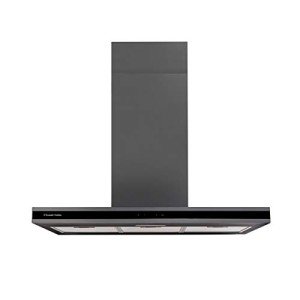Are You Able To Research Island Extractor Fan Online
페이지 정보

본문
Everything You Need to Know About Island Extractor Fans
Island extractor fans, typically described as island hoods or island range hoods, are vital devices in contemporary cooking areas, particularly those with cooking islands. These flexible devices not only improve the visual appeal of a kitchen however also play a crucial function in keeping air quality by eliminating smoke, steam, grease, and odors generated throughout cooking. This post looks into the various aspects of island extractor fans, including their performances, types, setup suggestions, and maintenance.

What is an Island Extractor Fan?
An island kitchen extractor hoods extractor fan is a type of kitchen ventilation system created to hang from the ceiling and is generally installed above a kitchen island. Unlike traditional wall-mounted hoods, island cooker hoods 60cm extractors are focused over the cooking location, offering unblocked airflow and effective extraction abilities.

Secret Functions of Island Extractor Fans:
- Air Filtration: Island extractors filter out smoke, steam, and grease particles from the air, helping to keep your kitchen and home environment clean.
- Odor Removal: By expelling undesirable cooking odors, these fans ensure a more pleasant cooking experience.
- Improved Air Quality: Maintaining great air quality is vital for health and wellness; island extractor fans help attain this by venting out toxins.
- Visual Appeal: With numerous styles available, island fans can also work as a stylish focal point in modern kitchen designs.
Types of Island Extractor Fans
Island extractor fans can be classified based on their design and functionality, which can impact their choice for various kitchen areas. Below are the primary types of island extractors:
| Type | Description |
|---|---|
| Ducted Hoods | These hoods expel air outside through ductwork, providing ideal ventilation. They need more complex installation due to the need for ducts. |
| Ductless Hoods | These hoods filter air and recirculate it back into the kitchen. They are easier to install however might be less reliable for heavy cooking. |
| Convertible Hoods | These flexible hoods can operate as either ducted or ductless, giving homeowners flexibility based upon their kitchen layout. |
Picking the Right Type
Elements affecting the kind of island extractor fan you choose include your cooking practices, kitchen style, and whether you have access to external venting.
Setup of Island Extractor Fans
Setting up an island chimney hood extractor Kitchen Cooker island fan requires mindful factor to consider and preparation to make sure ideal performance and safety. Here's a detailed guide to facilitate efficient setup:
Installation Steps:
Determine Placement: Identify the perfect area for the extractor fan, guaranteeing it is positioned directly above the cooking location.
Step Ceiling Height: Ensure compliance with advised height allowances which normally recommend installing the fan between 24 to 30 inches above the cooktop.
Set Up Electrical Wiring: Ensure that the place has access to electrical points and, if appropriate, ductwork for venting.
Protect Structural Support: Since island extractors hang from the ceiling, it's important to supply adequate support, frequently needing extra brackets or framing.
Mount the Hood: Following the producer's directions, securely attach the hood to the ceiling.
Connect Ductwork (if necessary): For ducted hoods, connect the required ductwork in accordance with structure codes.
Test Functionality: Once installed, run the fan to guarantee it runs correctly and effectively.
Maintenance Tips for Island Extractor Fans
Regular upkeep helps in extending the life of island cooker extractor hood extractor fans and preserving optimum performance. Here are a couple of upkeep tips:
- Clean Filters: Depending on the type, either tidy or replace filters occasionally-- normally every three months.
- Clean Down Surfaces: Clean the exterior surface areas routinely to prevent grease buildup.
- Look for Obstructions: Ensure the exhaust ducts are clear of any blockages to maintain air flow.
- Check Electrical Components: Regularly check electrical wiring and connections to guarantee whatever remains in safe working order.
Regularly Asked Questions (FAQs)
1. How do I understand if I require a ducted or ductless island extractor fan?
Picking between ducted and ductless depends on your kitchen layout. If your kitchen island hoods can accommodate ductwork that leads outside, a ducted fan is preferable for ideal ventilation. However, if ductwork setup is not practical, a ductless fan may be a suitable choice.
2. How loud are island extractor fans?
Noise levels vary substantially amongst different designs. Normally, try to find fans with a sound rating of 60 decibels or lower for a quieter operation.
3. Can I set up an island extractor fan myself?
While DIY setup is possible, it's suggested to hire a professional, especially for ducted models, to make sure compliance with building regulations and security regulations.
4. How often should I clean the filters of an island extractor fan?
It's advisable to tidy or replace the filters every 3 months or when you observe reduced efficiency in air purification.
5. What is the typical expense of an island extractor fan?
Prices can range substantially based on brand, design, and features, normally costing anywhere from ₤ 300 to ₤ 2,000. Setup costs must also be thought about.
In summary, island extractor fans are essential in keeping a clean and efficient cooking environment. They not just boost kitchen aesthetic appeals but also improve air quality and cooking experience. By comprehending the types available, setup processes, and maintenance regimens, house owners can make informed decisions concerning their Kitchen Cooker Island ventilation requirements. Appreciating the significance of these home appliances can affect the general performance and convenience of a modern kitchen.
- 이전글The 10 Most Scariest Things About Dual Range Cooker 25.05.19
- 다음글10 Microwave And Oven Built In Combo Meetups You Should Attend 25.05.19
댓글목록
등록된 댓글이 없습니다.


